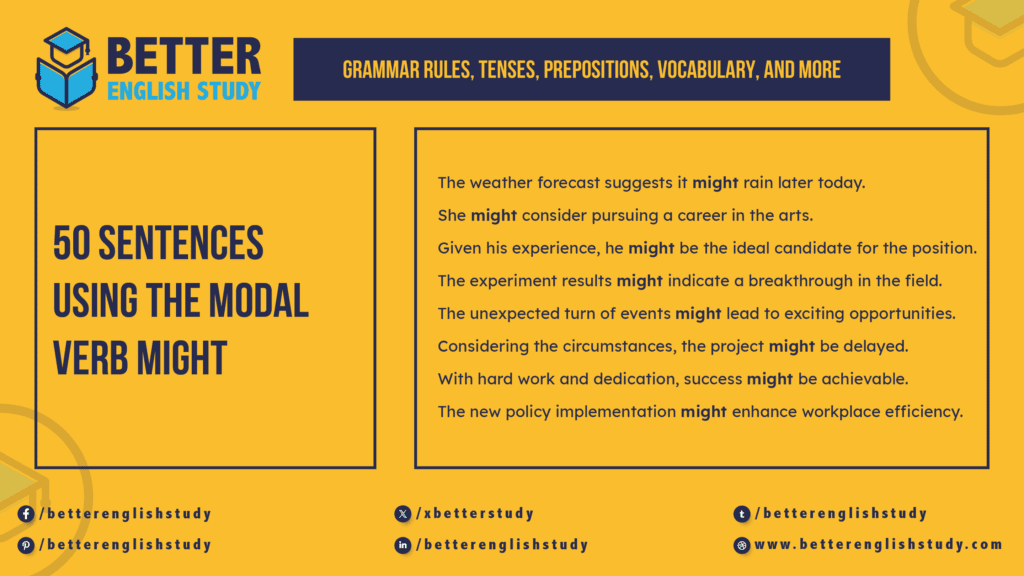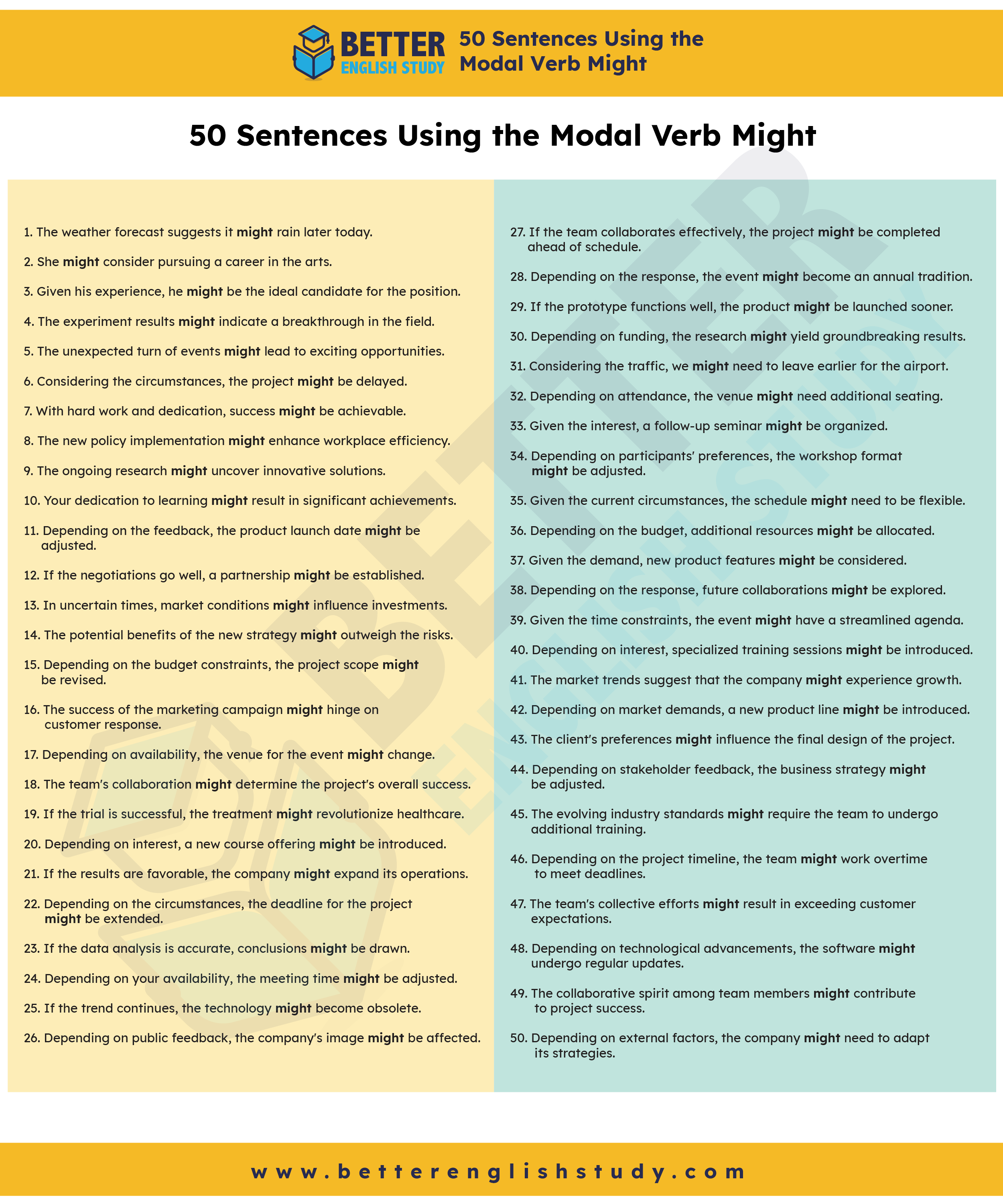
Welcome to a journey of linguistic exploration as we delve into the vast realm of possibilities through the lens of the modal verb “might.” Learning a language is like unlocking a treasure trove, and understanding when to use “might” allows us to navigate the landscape of uncertainties with grace.
In this article, we’ll embark on a linguistic adventure with 50 examples that illuminate the nuanced ways in which “might” can be employed, focusing on the keyword “possibility.”
When to Use Might
Before we delve into the examples, it’s crucial to understand when to use “might” in English. “Might” is a modal verb that indicates a possibility or a likelihood of an event occurring. It is often used when expressing uncertainty, making suggestions, or discussing hypothetical situations. Understanding the appropriate contexts for using “might” enhances your language skills and ensures effective communication.
Let’s see the examples for a better understanding.
1. Possibilities in Everyday Scenarios
- The weather forecast suggests it might rain later today.
- She might consider pursuing a career in the arts.
- Given his experience, he might be the ideal candidate for the position.
- The experiment results might indicate a breakthrough in the field.
- The unexpected turn of events might lead to exciting opportunities.
- Considering the circumstances, the project might be delayed.
- With hard work and dedication, success might be achievable.
- The new policy implementation might enhance workplace efficiency.
- The ongoing research might uncover innovative solutions.
- Your dedication to learning might result in significant achievements.
2. Uncertainties in Decision-Making
- Depending on the feedback, the product launch date might be adjusted.
- If the negotiations go well, a partnership might be established.
- In uncertain times, market conditions might influence investments.
- The potential benefits of the new strategy might outweigh the risks.
- Depending on the budget constraints, the project scope might be revised.
- The success of the marketing campaign might hinge on customer response.
- Depending on availability, the venue for the event might change.
- The team’s collaboration might determine the project’s overall success.
- If the trial is successful, the treatment might revolutionize healthcare.
- Depending on interest, a new course offering might be introduced.
3. Conditional Statements
- If the results are favorable, the company might expand its operations.
- Depending on the circumstances, the deadline for the project might be extended.
- If the data analysis is accurate, conclusions might be drawn.
- Depending on your availability, the meeting time might be adjusted.
- If the trend continues, the technology might become obsolete.
- Depending on public feedback, the company’s image might be affected.
- If the team collaborates effectively, the project might be completed ahead of schedule.
- Depending on the response, the event might become an annual tradition.
- If the prototype functions well, the product might be launched sooner.
- Depending on funding, the research might yield groundbreaking results.

4. Probabilities in Planning
- Considering the traffic, we might need to leave earlier for the airport.
- Depending on attendance, the venue might need additional seating.
- Given the interest, a follow-up seminar might be organized.
- Depending on participants’ preferences, the workshop format might be adjusted.
- Given the current circumstances, the schedule might need to be flexible.
- Depending on the budget, additional resources might be allocated.
- Given the demand, new product features might be considered.
- Depending on the response, future collaborations might be explored.
- Given the time constraints, the event might have a streamlined agenda.
- Depending on interest, specialized training sessions might be introduced.
5. Speculations in Professional Contexts
- The market trends suggest that the company might experience growth.
- Depending on market demands, a new product line might be introduced.
- The client’s preferences might influence the final design of the project.
- Depending on stakeholder feedback, the business strategy might be adjusted.
- The evolving industry standards might require the team to undergo additional training.
- Depending on the project timeline, the team might work overtime to meet deadlines.
- The team’s collective efforts might result in exceeding customer expectations.
- Depending on technological advancements, the software might undergo regular updates.
- The collaborative spirit among team members might contribute to project success.
- Depending on external factors, the company might need to adapt its strategies.
Congratulations on reaching the end of our linguistic expedition! By now, you’ve not only seen how “might” opens the door to possibilities but also gained insights into when to use this versatile modal verb. Learning when to use “might” is like acquiring a key to unlock a world of nuanced communication.
Keep practicing, keep exploring, and remember that every “might” offers a potential linguistic adventure.
